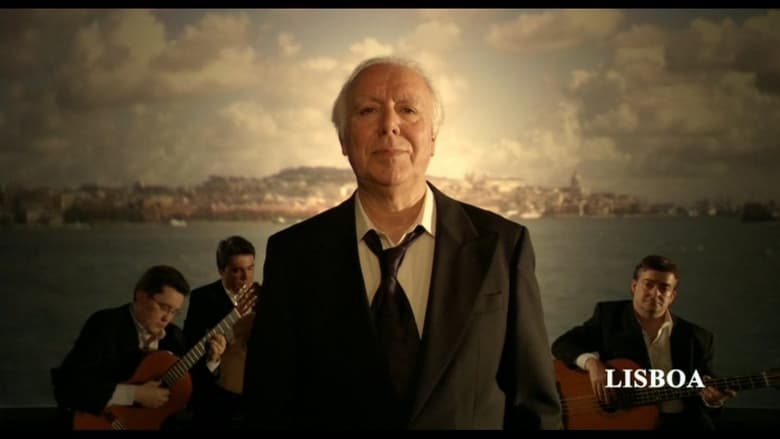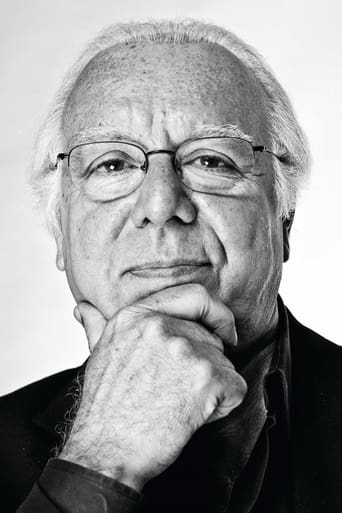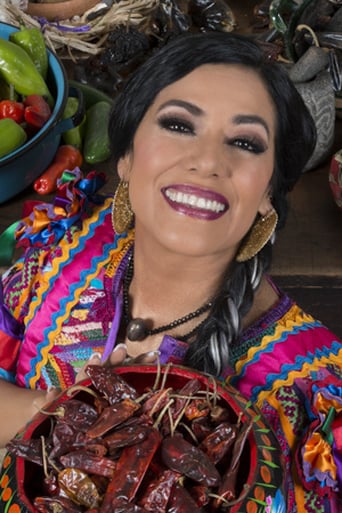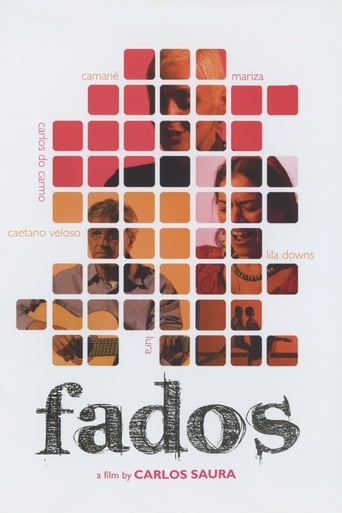
A series of musical performances showcasing the diverse facets of fado, a musical genre from Lisbon.
Similar titles

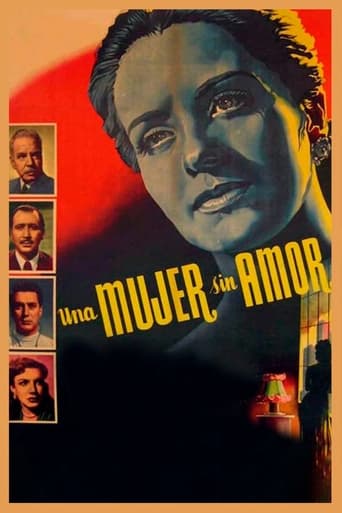




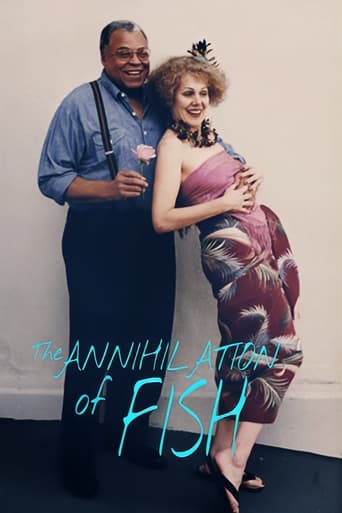
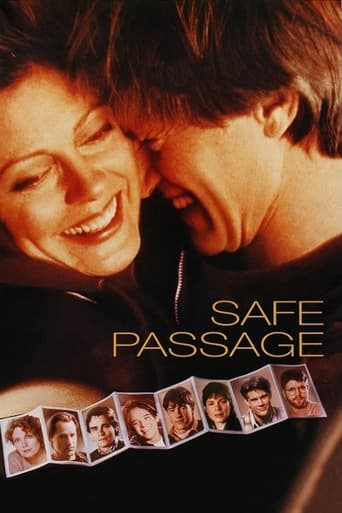
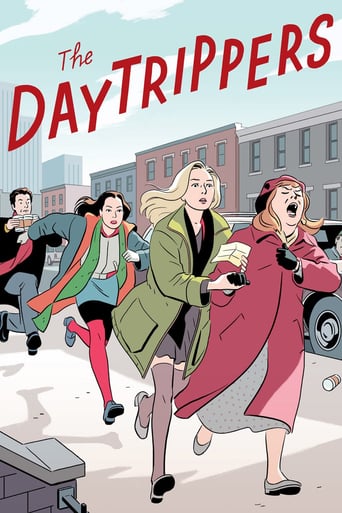
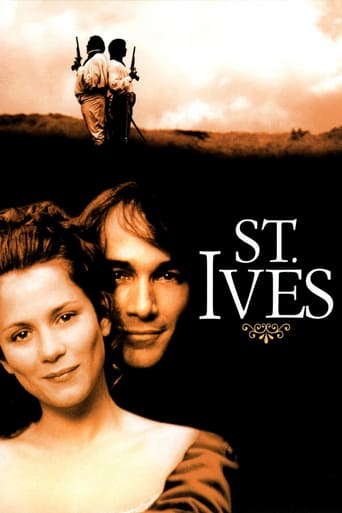
Reviews
Best movie of this year hands down!
Through painfully honest and emotional moments, the movie becomes irresistibly relatable
The film never slows down or bores, plunging from one harrowing sequence to the next.
Through painfully honest and emotional moments, the movie becomes irresistibly relatable
We went to see this film because it was described a the Portuguese version of flamenco. We went directly from a flamenco class to the film and were enthralled. Never heard of fado before, but we became fans at first hearing it and watching this movie. I really liked the director getting out of the way and letting the performers perform without some distracting commentary droning on. Most touching was the older woman singing about regret, the passage of time, and the desire to change her past. Most upsetting was seeing that the virus of rap has infected yet another musical genre. However, this was an excellent movie that has inspired us to learn and listen more. We cannot wait for it to be released in a US format DVD.
«I sat in a theatre listening to the music coming out of the big speakers: the latest from Brazil. The film I was coming to see was "FADOS" by Spanish auteur Carlos Saura. I thought fado was from Portugal - I was confused,» said another IMDb user.I can only sympathize. Film Author (and that's more than Director to you) Carlos Saura decided, because no one had done so for 30 years, to document Fado, the Portuguese national song of passion, sorrow, and remembrance that come so well in almost impossible to translate word, saudade, that seems to be the deepest in us, the Portuguese.But this is his artistic vision of it, ands he warns in the opening credits of the film that he is not going to present the «classic» fado, but he will attempt to describe it's 150 years old roots that go deep in the miscegenation of native European Portuguese and the local cultures of the peoples that were once our colonies, Brazil, Cabo Verde, Angola and also the «modern» and stylized ways Fado has taken through the voices who people who loved it, but innovated deeply in the way to sing it. Amalia Rodrigues was the first, changing the popular words of fado songs for poems written by great poets, those of centuries ago (like Camoens) and some contemporaneous. The stylized Fado of Coimbra was quickly accepted, though usually restricted to the cultured Portuguese, as it emerged from the groups of college students from that town. Carlos do Carmo, who now passes for a «classic», with his respectable 70-y-o look, was indeed a revolutionary who dared (protected by his mother, herself one of the best Fado singers ever, Lucilia do Carmo) to sing Fado as a song, upsetting the traditional rhythm and pose of Fado singers. Some audiences went riotous at first and then acceptance came. There were others, and now the new born queen (a princess yet), Mariza, sings Fado in a totally different way again, HER way, and it is not so much her African origin that does it, I think, but her voice, and her soul. I do not think she is a beautiful girl, though many will throw bricks at me for saying so, but I am deeply touched by her passionate voice, and her attitude; there is no doubt that she has the same Fado culture, and love, as Amalia, and Lucilia, because when she sings she transfigures herself. You'll notice all this, and more, viewing the film.«Casa de Fado» is the only sketch in which you'll have a peek of the «real thing» as it happened in Portuguese «tabernas» (taverns, where the poorest of a poor people talked, drank, and tried to survive the sorrows of life and love together by singing them out). Through out the film, for the disappointment of the unprepared viewer who expects to watch and hear the purest of classic Fado, Carlos Saura uses multimedia to mix, on stage and on screen, several art forms with modern ballet and African folk dances on top, all connected to the Portuguese song. I do not like rap dance, but you must know that many African and Portuguese youths do, and there are many who wanted to show their respect for the African roots of Fado.I was also shocked at first, when I viewed the film last night. But then I thought it over, and this morning I decided to leave here this warning. Please watch the film once, and let yourself go with the tunes, and the mood of poetic passion that Saura builds so well. Enjoy the great guitar players, and try to understand why artists so much apart came together in this film project That's another beauty of the thing, Fado and Portuguese: both are able to integrate different peoples, and different cultures, all unique, and all the same! A footnote: someone praised «the fight superstar Mariza has with the Spanish singer in MEU FADO MEU - probably the only emotional moment in the film » The choreographed fight in the film is played by two solo Spanish dancers, underlining very well the words of that particular song. I don't think that one was sang by Mariza, but Mariza is much better looking than the frail dancer in that scene.A plea: I beg with film producers of the world to put this in a DVD with the short documentary by António da Cunha Telles, Fado (1970). I saw it 37 years ago, and the beautiful images and sounds came to me when I was researching our IMDb today. It would be a smashing DVD, contrasting two great film directors, two epochs wide apart, and with the same deep respect and love for an art form.
As often as not art is comprehended not within the axiomatic framework of elements proposed by the artist, but within the context created by the audiences, based on their cultural boundaries and "pre-concepts". In the case of "Fados", it is clearly the aim of Saura, to the regrettable anguish of a few people, to portray a music genre which for many decades had been confined within the realms of its country of origin, Portugal. But then came the Goddess Amalia, who dared to "break the rules", taking all her wonderful energy to the four corners of our planet, and suddenly, as by a magic spell or charm, Potugal awoke, to realize that the whole world had already become aware, and ready to assimilate, what had been devalued and belittled. This music crossed the borders and influenced nations all over the world, causing astonishment in those nationals who never believed that could ever be possible, and who used to see it under the guise of a folk art manifestation, many times outside the limits of political correctness. - Saramago is more read in Spain alone, or Japan or Brazil, than in his own country (where 67% of the population never read any single book!) And most of his work only get published in Portugal after having become well accepted in other countries; his Nobel Prize is surely not due to his compatriot's acclaim or popularity - All in all to say that Fado finally may have become another matter of Portuguese delayed praise, both socially and politically (it could as well be challenged that it is still, in Portugal, a regionalized capital's possession, for some purists do not even recognize its performance outside the auspices of Lisbon's district "Bairro Alto".) But that acceptance does not justify whoops of nationalistic appropriation, for it is now, by merit and history, living in a much wider sphere, transmuted and amalgamated to suit the idiosyncrasies of all cultures that embraced it. Carlos Saura film beautifully shows how this can be so true.
I had the privilege to see "Fados" yesterday, at its premiere in Lisbon. I'm also a Saura's fan, since "Cria Cuervos" (1975) and I saw most of his films, including the famous Flamenco trilogy (Bodras De Sangre, Carmen and Amor Brujo). I also saw and liked very much the following musicals, "Sevilhanas", "Flamenco" and "Tangos". But those were films where Saura could expressed his art on his own culture (with exception of "Tangos"). In "Fados" (an invitation of several Portuguese institutions to make a film to promote the Lisbon's song) Saura mixed too many things with no connection at all. The argument was that Fado was not popular enough and therefore he needed "big" names to promote it (?!). Well, you may say that Chico Buarque, Caetano Veloso, Lilla Downs, Lura or Miguel Poveda are good singers. But they are certainly not fado singers! The other mistake was to mix modern dance with the songs. Fado has no dance element (like Flamenco or Tango) in it. It's a disturbing element that doesn't help the reality. One may hope that "Fados" will be a bestseller, but its not a serious film. It's a pity.
Top Streaming Movies











